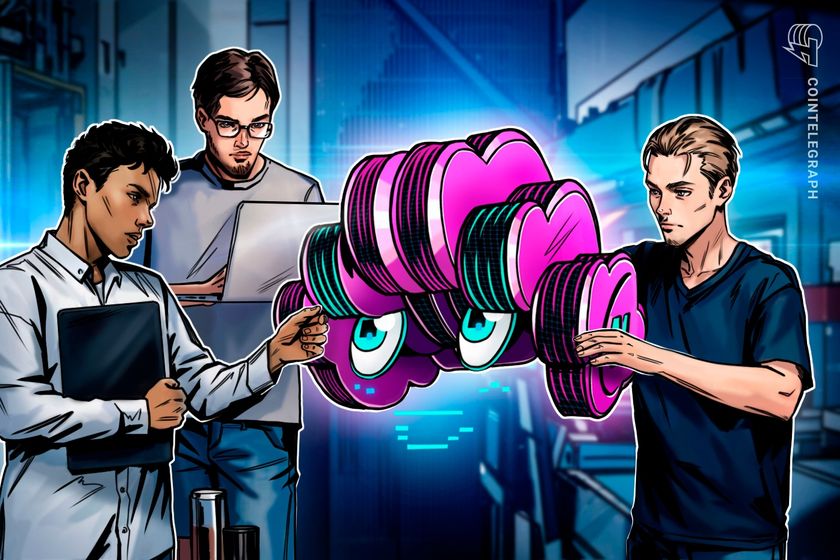<img src="https://images.cointelegraph.com/images/840_aHR0cHM6Ly9zMy5jb2ludGVsZWdyYXBoLmNvbS91cGxvYWRzLzIwMjUtMDMvMDE5NTg0NWYtZDU2Ni03YWZlLTkyODktZDRmYmU3ZTY2ZGRh.jpg"><img src="https://images.cointelegraph.com/images/840_aHR0cHM6Ly9zMy5jb2ludGVsZWdyYXBoLmNvbS91cGxvYWRzLzIwMjUtMDMvMDE5NTg0NWYtZDU2Ni03YWZlLTkyODktZDRmYmU3ZTY2ZGRh.jpg">Opinion by: Felix Xu, co-founder of ARPA Network and Bella ProtocolAI has been a dominant narrative since 2024, but users and companies still cannot completely trust it. Whether it’s finances, personal data or healthcare decisions, hesitation around AI’s reliability and integrity remains high.This growing AI trust deficit is now one of the most significant barriers to widespread adoption. Decentralized, privacy-preserving technologies are quickly being recognized as viable solutions that offer verifiability, transparency and stronger data protection without compromising AI’s growth.The pervasive AI trust deficit AI was the second most popular category occupying crypto mindshare in 2024, with over 16% investor interest. Startups and multinational companies have allocated considerable resources to AI to expand the technology to people’s finances, health, and every other aspect.For example, the emerging DeFi x AI (DeFAI) sector shipped more than 7,000 projects with a peak market cap ofhttps://cointelegraph.com/news/crypto-defai-down-can-it-come-back-up
ZK-SNARKs rely on advanced cryptographic proof systems that let one party prove something is true without revealing how. For AI, this enables models to be verified for correctness without disclosing their training data, input values or proprietary logic.Imagine a decentralized AI lending agent. Instead of reviewing full financial records, it checks encrypted credit score proofs to make autonomous loan decisions without accessing sensitive data. This protects both user privacy and institutional risk.ZK technology also addresses the black-box nature of LLMs. By using dynamic proofs, it’s possible to verify AI outputs while shielding both data integrity and model architecture. That’s a win for users and companies — one no longer fears data misuse, while the other safeguards its IP.Decentralized AI We’re entering a new phase of AI where better models aren’t enough. Users demand transparency; enterprises need resilience; regulators expect accountability.Decentralized, verifiable cryptography delivers all three.Technologies like ZK-SNARKs, threshold multiparty computation, and BLS-based verification systems aren’t just “crypto tools” — they’re becoming the foundation of trustworthy AI. Combined with blockchain’s transparency, they create a powerful new stack for privacy-preserving, auditable and reliable AI systems.Gartner predicted that 80% of companies will be using AI by 2026. Adoption won’t be driven by hype or resources alone. It will hinge on building AI that people and companies can actually trust.And that starts with decentralization.Opinion by: Felix Xu, co-founder of ARPA Network and Bella Protocol.This article is for general information purposes and is not intended to be and should not be taken as legal or investment advice. The views, thoughts, and opinions expressed here are the author’s alone and do not necessarily reflect or represent the views and opinions of Cointelegraph.

https://cointelegraph.com/news/ai-has-a-trust-problem?utm_source=rss_feed&utm_medium=rss&utm_campaign=rss_partner_inbound
